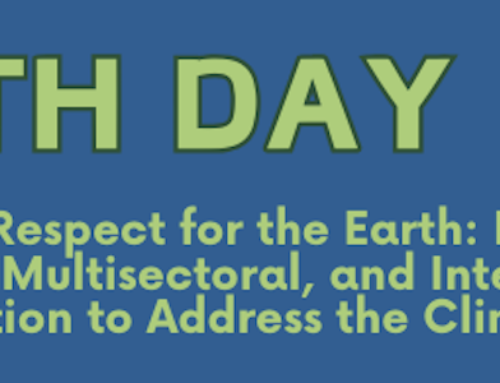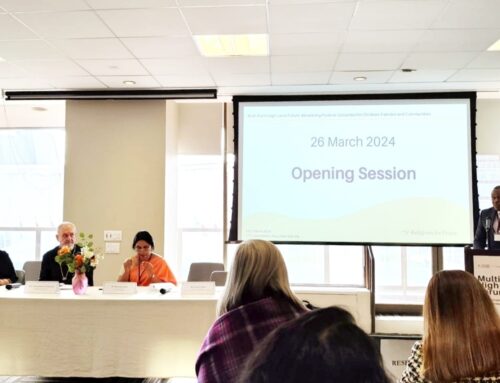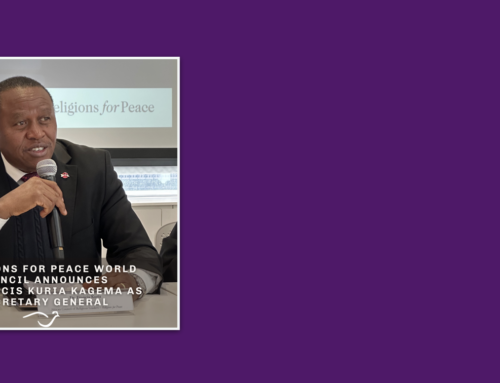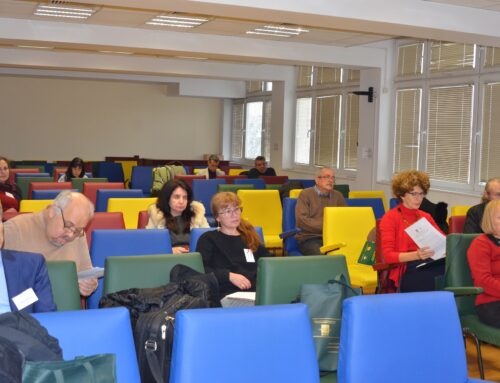On Friday April 19th RfP Europe and RfP Italia hosted the first of a series of workshops and conferences contributing towards the multi-year project “Combatting Desertification in Italy and Tunisia”. This first workshop focused on the science of desertification and climate change and brought together scientific experts from both Tunisia and Italy present and answer questions.
The first presenter, Marco Bresci, is a graduate in electrical engineering, holds a Level I master’s degree in Road Safety with the University of Florence and has been a scholar of environmental issues and sustainable development for some 30 years. He has published various books and articles on environment, economics, energy, resource management, global prosperity, social development, sustainable mobility, quality of life, ethics and spirituality. With a view to environmental protection, he promotes-in collaboration with his network of experts from the scientific and environmental world-events, projects, seminars and educational interventions on ethical resource and energy management and for the dissemination of innovative sustainable technologies. Marco conducts training courses on ecological and human transition and is the is president of the nonprofit cultural association Orizzonte Green.
Marco Bresci’s presentation (here) focused on the scientific causes and effects of climate change and provided an example of best practice work in anti-desertification from a WFP project in Chad.
The second presenter, Wael Ben Abba, is an entomologist with a profound dedication to the study and conservation of insect diversity in Tunisia. With over 14 years of experience in the field, Wael dedicated a lot of time to his passion for insects and their ecosystems which led him to conduct extensive research aimed at understanding and preserving Tunisia’s rich insect fauna.
Notably, Ben Aba played an important role in the establishment of the Tunisian Association for Wildlife, where he served as a co-founder and president for five years. In addition, Wael is also recognized for his role as a speaker on the topic of biodiversity in Tunisia through numerous media appearances and presentations.
Wael Ben Abba’s presentation, which can be found below, focused on the meaning of diversity and bio-diversity, and why it is important to foster and protect, as well as the reasons it is under threat in places like Tunisia. Wael Ben Abba also provided suggestions for how individuals can make a difference in combatting climate change and biodiversity loss.
The final presenter, Olfa Sehli, is a Tunisian marine ecologist, holds Master’s degrees in Marine Biology and Sustainable Blue Growth. She specializes in marine wildlife conservation and ocean governance, conducting research and community engagement to promote sustainable practices for the health of our oceans
Olfa Sehli’s presentation (here) provided insight on the interconnection between the land and sea, and how desertification on land has detrimental effects on marine health.
Religions for Peace Europe would like to extend a warm thanks to all of the presenters, as well as the moderators and co-hosts, Dr. Luigi De Salvia and Dr. Mohamed Ben Moussa.
The next virtual workshop will be held on May 17th, 2024. Please continue to check this website and our social media pages for more updates.






